Search the Special Collections and Archives Portal
Search Results
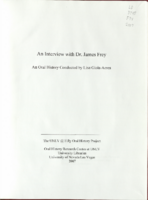
Transcript of interview with Dr. James Frey by Lisa Gioia-Acres, February 14, 2007
Date
Archival Collection
Description
Text
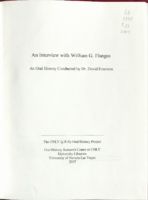
Transcript of interview with William G. Flangas by Dr. David Emerson, September 27, 2006
Date
Archival Collection
Description
Text
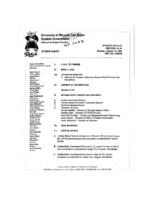
Meeting minutes for Consolidated Student Senate, University of Nevada, Las Vegas, January 29, 2001
Date
Archival Collection
Description
Text

Meeting minutes for Consolidated Student Senate University of Nevada, Las Vegas, May 5, 1988
Date
Archival Collection
Description
Text
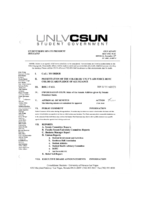
Meeting minutes for Consolidated Student Senate, University of Nevada, Las Vegas, November 19, 2007
Date
Archival Collection
Description
Text
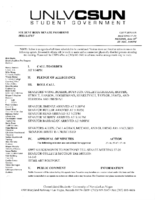
Meeting minutes for Consolidated Student Senate, University of Nevada, Las Vegas, June 18, 2007
Date
Archival Collection
Description
Text
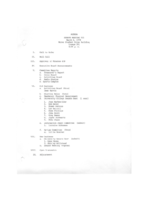
Meeting minutes for Consolidated Student Senate, University of Nevada, Las Vegas, March 6, 1978
Date
Archival Collection
Description
Text
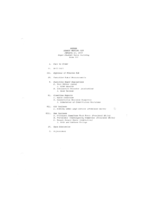
Meeting minutes for Consolidated Student Senate, University of Nevada, Las Vegas, January 23, 1979
Date
Archival Collection
Description
Text
Mike Miller Papers
Identifier
Abstract
The Mike Miller Papers (1971-2014) include advertisements, books, and paintings by Las Vegas, Nevada-based artist and graphic designer Mike Miller. Materials include photographs, art prints, advertisements, newspaper clippings featuring Miller's advertisements, casino advertisements, and books designed, written, or illustrated by Miller.
Archival Collection
Norman Kaye Papers
Identifier
Abstract
The Norman Kaye Papers span the years of 1952 to 1969 and are comprised of material from the career of Norman Kaye, a Las Vegas lounge entertainer and longtime poet laureate of Nevada. The materials contain correspondence, newspaper clippings, music manuscripts and poetry, and audio recordings from the Mary Kaye Trio.
Archival Collection
